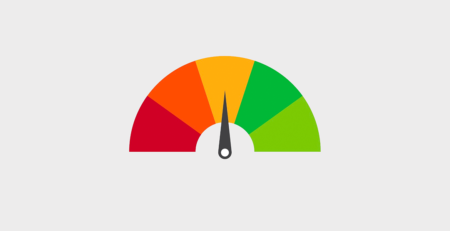Is It Worth Using a Mortgage Advisor?
A mortgage adviser is qualified to help find the most appropriate mortgage for your circumstances, can increase your chances of obtaining a mortgage, and possibly save you money.
Applying for a mortgage is a daunting experience. Without the help of a mortgage advisor, the experience can be extremely stressful, and you may not get the best Rate/Product.
For some people, using a mortgage advisor can be a sort of safety blanket and help them feel more confident in obtaining a mortgage. for example, people that may not be particularly confident dealing with the financial industry or worried about making a mistake
As a mortgage advisor needs quite a lot of information about their clients, they will spend a large amount of time liaising with clients and getting to understand their needs and circumstances. This can be done over the phone, but many people prefer to do this in person – at least the first meeting anyway.
What Questions Will a Mortgage Broker Ask?
Mortgage advisors have the qualifications, knowledge, and experience to find you a mortgage that suits your circumstances. Without a mortgage advisor, you may struggle to obtain a mortgage, or you may end up with a mortgage you cannot afford.
If you are preparing to meet with a mortgage advisor, you may have some reservations. Don’t worry though, a mortgage advisor is there to help. Sure, it can be a little strange telling someone you have just met personal details, but it will be worth it in the end!
At REMOUK Ltd, we aim to get to know our clients, so they feel comfortable and confident when discussing their finances and life choices.
In this blog, we are going to share the most common questions a mortgage advisor will ask you. Starting with…
What Is Your Monthly and Annual Income?
Any mortgage lender will want details of your income before they agree to give you a mortgage. Your mortgage advisor will most definitely ask for a breakdown of what you earn and how. If it’s a joint application, you’ll need the income for both parties.
If you work part-time or you are self-employed, lending to you may seem like a bigger risk, so it is important to be upfront about your income and have the statements and payslips to demonstrate a breakdown of your income.
Do You Have Any Credit Cards or Loans?
You will be asked to provide information on any existing or previous credit cards and loans you have. The mortgage lender will want reassurance that you can make regular, ongoing payments on time.
Having a credit card or other monthly payments (such as car finance) may be helpful when obtaining a mortgage, however you do not necessarily have to have credit in place to obtain a mortgage.
Do You Have Any Debt or Adverse Credit?
Having debt isn’t always a negative thing when it comes to obtaining a mortgage. As long as you can prove that you are consistently repaying the money you owe, your debt shouldn’t hinder your chances of getting a mortgage.
Adverse credit refers to a poor credit history that might include delinquent debt, late bill payments, large amounts owed or even bankruptcy.
What Regular Outgoings Do You Have?
Aside from any credit cards, loans or debt, your mortgage advisor will also ask about your other outgoings. These might include car insurance or finance, other essential insurance, childcare fees, child maintenance, gas and electricity bills, water bills, council tax, essential travel and other expenses.
Your mortgage advisor will likely ask to see your bank statements to check if you have any significant expenses. This allows the mortgage advisor to get an understanding of whether you will be able to afford the mortgage payments.
Do You Have Any Dependants?
Do you have any children, elderly adults or disabled adults that are dependent on you? If so, the mortgage advisor will ask for the names and dates of birth of any financial dependants.
If you have children, the mortgage lender may ask if you want more children in the future. If you don’t have children, they may ask if you are planning on having children in the future.
Where Is Your Deposit From?
Have you saved for your deposit? Or did you inherit it? Or was it gifted? If you have saved for the deposit yourself, this shows mortgage lenders that you are responsible with your money and you are less of a risk.
What Type of Mortgage Do You Want?
If this is your first time obtaining a mortgage, the mortgage advisor will explain the different types of mortgages available, including fixed-rate mortgages, standard variable rate mortgages and tracker mortgages etc. They will then ask you what type of mortgage you want and will discuss the best option for your circumstances.
How Much Do You Wish to Borrow?
Obviously, the mortgage lender needs to know how much you need to borrow from a mortgage lender to increase your chances of obtaining the mortgage at a good rate.
Get In Touch
If you are looking for an independent, trustworthy, and reliable mortgage company to help you through the mortgage process, or if you have further questions, don’t hesitate to get in touch on 01138730113 or fill out our online contact form and we will get back to you ASAP. For additional information you can download our mortgage guide on the website.
A MORTGAGE IS A LOAN SECURED AGAINST YOUR HOME. YOUR HOME MAY BE REPOSSESSED IF YOU DO NOT KEEP UP REPAYMENTS ON YOUR MORTGAGE OR OTHER DEBT SECURED ON IT. YOU MAY HAVE TO PAY AN EARLY REPAYMENT CHARGE TO YOUR EXISTING LENDER IF YOU REMORTGAGE.











